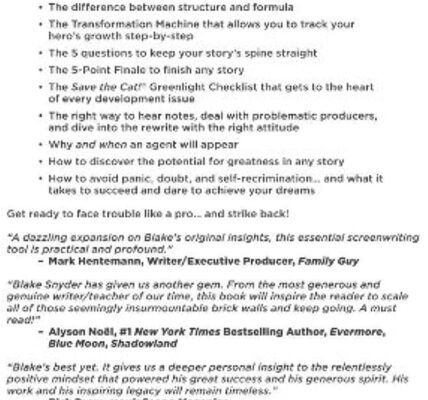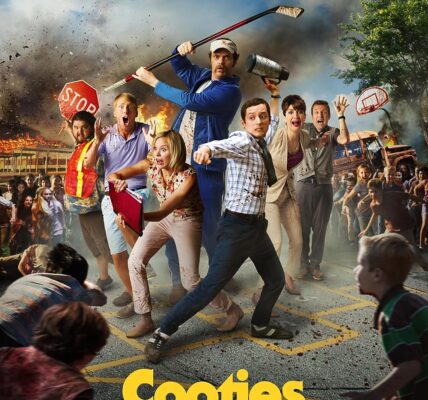Dan Hubbard: The Negotiator – movieScope
Is there a typical film that you are asked to work on as a casting director?
Well there’s two things happening right now in the film industry. There are movies in development where producers are trying to raise money with their investors and need to create a picture for the investors; they need to have letters of intent or commitments from the actors in order to get the money to actually make the film. And then there’s the really refreshing ones where the producer will come into my office and say ‘Right, I’ve got eight million to make the film, we’re shooting on these dates, I can make offers and guarantee payment by x amount and all the money is in the bank’.
What do you do in that kind of scenario?
I’ll go away, read the script, think about all the characters, sit down and basically come up with the names that I instinctively thought about, and then talk about supporting roles. We’ll come up with a kind of game plan, work out a first, second, third, fourth choice for the leading actors, and they’re usually going to be A-list stars. But we have to chase after them or court their agents. And then depending on how the director works, I usually organise meetings where the actors might come in and read a number of scenes and then there might be recalls. Then I negotiate a deal and there’s a big debate with the producer and the director about who’s right and why, and how they fit into the ensemble, and how they’ll react together. Then I negotiate a deal, draw up a casting advice note, sometimes I do the contracts and then my job’s over.
But if a major star has casting approval, can that throw your work into disarray?
Kind of, things are becoming a lot harder these days because we rely on talent so much in order to raise the finance. Yes they do have more power, and they can get paid a massive amount, and they can have casting approval over their co-stars. So it can be frustrating, but I think the power of the script and the power of the team involved, those sort of successful and attractive elements, will always win over at the end of the day.
It’s a question of reconciling your wish to get an actor on board with the demands they make during negotiations, isn’t it?
Usually it starts off with script, fee and who’s directing. They’re the three main elements, and once you’ve negotiated a fee and they’ve said they want to do it, and they’ve sat down with the director, everything’s moving along nicely. But then everything else is considered, from whether they’re going to bring their kids with them, whether they’re getting business-class flights or first-class flights, whether they’re going to get an exclusive car or a non-exclusive car. Whether there’s going to be a set amount of waiting time once they’ve finished on set. Whether they’re going to get a trailer, and whether there’s going to be Newcastle Brown Ale and sushi in it… It can be as intricate as that. And whether they get a dongle on their computer, and whether they get Internet in their hotel room. You get the picture.
Is it difficult for you to resist typecasting actors?
I don’t like casting the obvious people. I think that’s where the British film industry has gone so wrong in recent times, churning out the same type of films—be it bank heist movies, football hooligan movies, or the same kind of horror films—with the same kind of actors in them.
If you were casting the role of a casting director, what qualities would you look for?
I think definitely a good eye, a very good instinct for people; it’s almost as hippyish sometimes as feeling someone’s energy. I think you have to have a knowledge of people and a knowledge of life and real-life situations. I think you have to be diplomatic; you have to have to try and have a calming personality, and you have to be able to win people’s trust. People are coming in for meetings and they’re really nervous, and I think in many ways being an actor can be very hard.
As the son of legendary casting directors John and Ros Hubbard, was there ever a chance you wouldn’t go into the business?
Not really, I’ve been surrounded by it all my life. Ever since I was knee-high to a grasshopper I’ve been going to the theatre but also coming home to find actors waiting on my couch. We were always meeting actors, and I wondered why everybody was so nice to us all the time. When I was 16-years-old we moved from London to Dublin to do The Commitments and our house was the production office. If you remember the film, it was exactly like Jimmy Rabbitte’s house. The doorbell would ring and it would be some weirdo with an accordion, or a whole bunch of people auditioning on the stairs. So this is something that I’ve always wanted to do.
You mention your couch there. Is that the fabled casting couch?
That’s what everybody says of course, but in this day and age there’s absolutely no chance that any professional in their right mind would try anything like that in the casting world. I can’t speak for everyone, but I’m sure most of my contemporaries would agree.
Which of your films are you most proud of?
The Bourne Ultimatum, definitely. It was a really enjoyable job to work on. I was on top of things, I understood how important the film was and how much we had to live up to from The Bourne Identity. And it proved to be a really cracking thriller. I had to do it Paul Greengrass’ way, of course, and it was hard work and there was very little time, but I was really pleased with the end result. www.hubbardcasting.com










